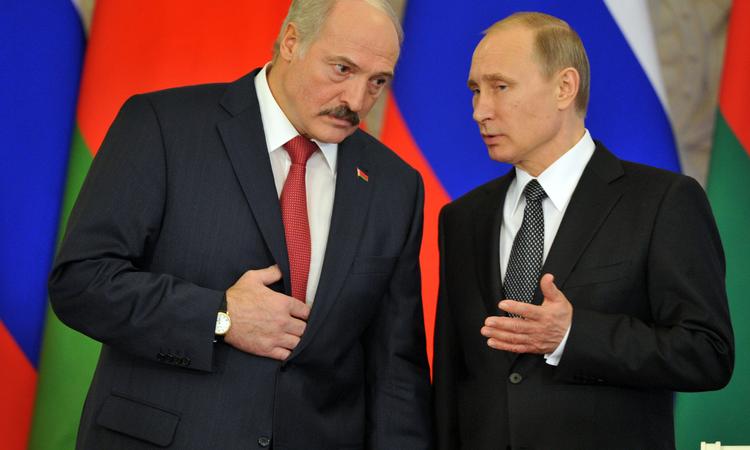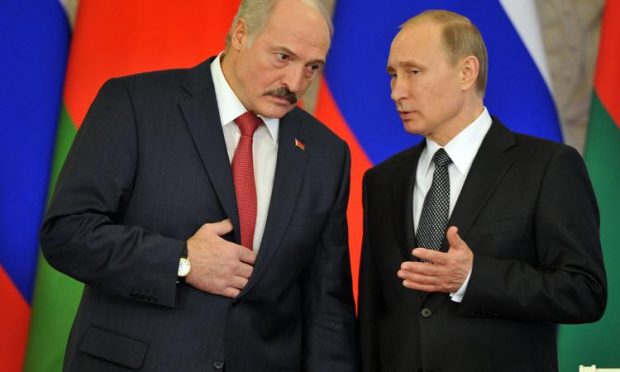
Fragile ties between Moscow and Minsk
On March 9th, Kyrgyzstan hosted the all prime ministers of the EAEC (Eurasian Economic Community). The agenda of the intergovernmental council identified 14 issues.
One of the key issues was the state of trade between countries. This issue was dealt with directly by all the Prime Ministers of the EAEC. According to the board of integration and macroeconomics, forecasts are not particularly positive because there is still a decline in mutual trade. Thus, the main task for this year, as noted by the Prime Minister of Kyrgyzstan, Sooronbai Jeenbekov, is to do everything possible to remove all the remaining barriers between the members of the union and not to abandon trade with third countries. He also added that by joint efforts all should achieve equal access to the common market of the EAEC.
“We understand that this will contribute to the growth of trade flows. In this case, we focus the work on the development of foreign trade relations and this should not be a substitute for the work of improving trade rules within the Union and the removal of barriers, exceptions, and limitations. I hope that our decisions will give a new impetus to the Eurasian integration. In turn, we will actively promote the effective implementation of the plans and new ideas,” said Sooronbai Jeenbekov.
At the sittings of an intergovernmental board, it was clear that there were difficulties in the relations between some countries. The leaders of the governments of Belarus and Russia had a verbal skirmish at a meeting. Prime Minister of Belarus Andrei Kobyakov expressed bewilderment at the actions of Russia. And, of course, there were disputes about oil between Moscow and Minsk.
“We are forced to state that today there is no bilateral regulatory framework, which was established not in isolation, but in close relationship with the multilateral agreements of the Eurasian Economic Union. Moreover, problems in bilateral relations fundamentally affect our participation in multilateral integration processes. We do not share these two tracks, because problems in bilateral relations have a distorting effect on Eurasian integration. We are indeed expressing our extreme concern about the continuing of unresolved problems in the oil and gas sector, the failure to comply with bilateral and multilateral agreements on the terms of energy supplies, and the inaction against this background of the Eurasian Economic Commission. We have to state that new obstacles and barriers are being created. Well, let it be until the difference in gas prices. We agreed at the signing of the agreement on the Eurasian Economic Union that it will be gradually eliminated by 2025. But for some reason, the difference is growing dramatically. Not one, five, or even ten percent, and the price difference between Belarus and the Russian Federation increased from 38% in early 2014 to 110% in 2016. Why, after the creation of the EAEC instead of a gradual reduction, the difference became almost 3 times higher? What freedom of movement of goods, services, capital and labor can there be?” were the words of Prime Minister of Belarus, Andrei Kobyakov.
The chairman of the government of the Russian Federation Dmitry Medvedev swiftly gave his answer. The Russian prime minister said that the disputes between Moscow and Minsk are two-sided and to take them to a format where multilateral problems are discussed is akin to blackmail.
His stance was expressed in sharp words: “In fact, with respect to other members of the union who are not involved in the dispute, an absolutely unacceptable situation arises and this situation is akin to blackmail: either you will influence the decision of the other party in the dispute, or we will not sign anything. If some of the countries present here were not part of our union or, we imagine, they left the union, they would now buy gas at European prices of about $200 per thousand cubic meters. That’s all. And you do not need to prove anything or practice counting. Everything would be significant, much more expensive. Here no one forcibly keeps anyone”.
Despite such harsh statements and arguments, both Minsk and Moscow still do not exclude the expected effects of future integration. At the end of the day, after all discussions, the heads of government signed 10 agreements. Among them was a document on measures to develop exports to the market of third countries of machinery and equipment for agriculture produced in the member countries. An agreement on preparation of the main directions for the implementation of the digital agenda of the EAEC was also signed. The next meeting of the intergovernmental council of the Eurasian Economic Union is expected to be held in Russia late May.



